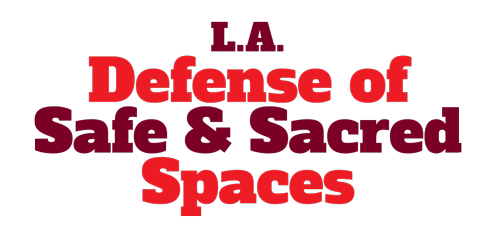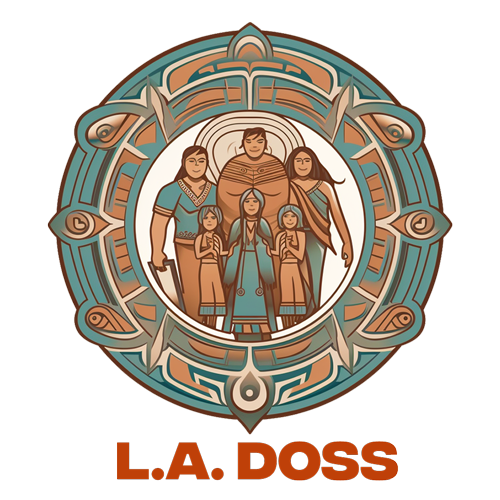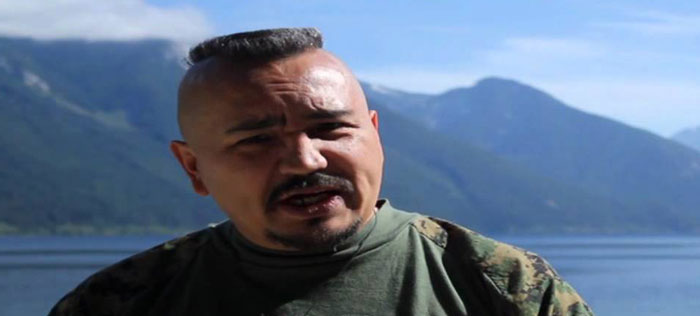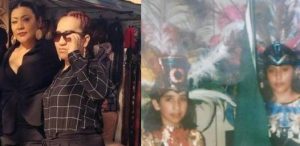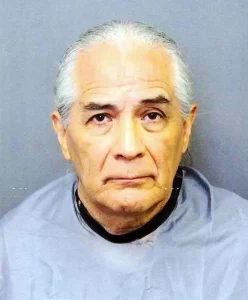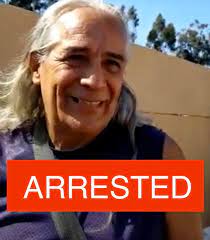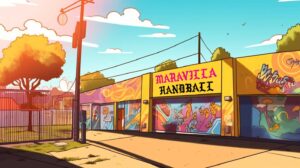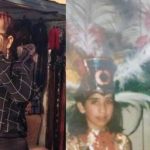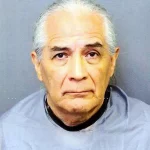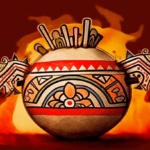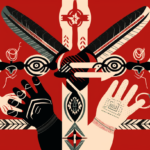Sisters, brothers;
My name is Sakej, I am Mi’kmaw from Esgenoopetitj. I am a Warrior of my people. My wife Eyem Shxweli Shlali of the Sto:lo Nation, a traditional leader of her community, have heard of the situation happening on the Tongva Nation. We have heard of the man who got his braid cut as an act of humiliation to signify that he has been dishonorable. It is with a heavy heart that we hear this man had sexually assaulted our sisters. We understand that the psychological and spiritual scaring runs deep in assaults like this and can be carried unresolved for a lifetime. Our support and our prayers are for the ladies who have been wronged in this way.
We must recognize, our sisters found the courage to speak out against an atrocity that happened to them. They found the power to tell that story even though they knew that they may be subjected to anger, hostility and backlash. They knew their story would be a tough one to tell since it exposes one of our own, an indigenous man, who has been respected by others. I imagine this makes it all the more complicated and harder to tell.
When the men, authentic Indigenous men living the traditional values and beliefs of our ancestors and way of life, heard of this they were ft troubled. How does a true Indigenous man of honor address the wrongs of a perceived elder against our sisters? How do we uphold justice against our own?
Are there traditional stories, traditional songs or teachings we can turn to for guidance?
Fortunately for our ancestors there weren’t any real stories like this so there was little reason for stories, songs or teachings of it. Unfortunately for our generation, it leaves us without clear stories to turn to for validation for actions.
However, we do know violence against our woman wasn’t tolerated. Our woman were held to the highest standard of respect. Any harm against them was met with a consequence, not because warriors want to be self-proclaimed heroes playing out some patriarchal fantasy but because of the reverence and connection we had for our mothers, our sisters and our daughters.
For direction, We can turn to the sacred teachings to the Lakota Nation on what to do when harm comes to the woman from one of our own. If a man was caught beating his wife, the warriors of the village would gather together and confront the wife-beater. They would announce his violation then beat him to an inch of his life. His belongings were taken away and his shirt was cut up and torn. The wife beater was required to wear the torn shirt for a year. The shirt was a symbol of shame, shame is a powerful social tool when society operates in a belief system centered in honor. During this period he had to reconcile with his wife, his village and the warriors. He had to prove he was a good man. After a year, if the wife-beater proves he has learned the value of his wife and community he was restored to his status in a community ceremony. His belongs were given back and his relationships renewed but that is ONLY if he redeemed himself.
While most of aren’t Lakota, there is still wisdom in this teaching. Wisdom that teaches many lessons and some virtues. So What does this Lakota story teach us?
- There is no tolerance for physical violence against the women, even if it is one of our own.
- That there was a serious consequence to pay for this violence. It wasn’t just the beating, it wasn’t just the taking away of his property but most importantly, it was about, the year- long shaming to correct his character.
- That physical violence wasn’t tolerated so sexualized violence would not be either.
- That redemption is possible but ONLY after sincerely engaging in a year long reconciling process. It was not trivial, It was a long formal process to be done genuinely and not out response to pressure, that ended when those who have been wronged deem it finished. Those who have been wronged are the ones who determine if the situation has been resolved in their hearts.
- Redemption and restoration of personal respect can happen but it is an obligation of honor to commit to the effort of true reconciliation.
- That a women’s word of a injustice was enough to create consequence for the man of the village. We did not need to turn to white police, white courts, or white judges to determine our justice. Justice is a part of our culture and if we are to stand against colonialism we must take control of our own systems of justice. We had specific people who held that responsibility of enforcing that justice, the warriors.
My wife and I also understand that the cutting on this man’s braid has become a controversial issue. We don’t think it has to be controversial. This action should be seen as a revival of taking responsibility for our people, taking responsibility for our justice and it should be seen as an act of honor.
I hope that this situation becomes an opportunity. An opportunity to conduct a public ceremony and hold up those women who found the strength to speak power to their truth. To honor their choice and show them the support they need. It is also an opportunity to celebrate the actions of those who stood by the women and shamed the man who sexually abused them.
The women and these warriors have our full support.
All our relations,
Sakej and Eyem Shxweli Shlali
